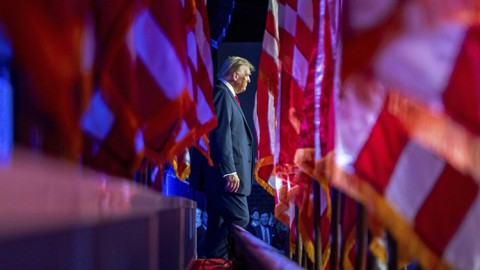The recent enlargement of the BRICS group, which now includes Saudi Arabia, Iran, Ethiopia, Egypt, Argentina, and the United Arab Emirates, is widely seen as a significant development that will have far-reaching implications on the world’s geopolitical and economic scene. It is also seen as a new game changer in the world’s energy dynamics.
BRICS is a bloc of emerging economies that was originally founded in 2009 by Brazil, Russia, India, China, and South Africa. The group has since become a major player in the global economy. However, the recent accession of another six emerging economies marks a significant milestone in the evolution of global dynamics.
Of course, the BRICS expansion is expected to enhance the group’s clout and influence to shape the course of global affairs as the world can expect renewed collaboration, innovation, and cooperation among the member states, fostering a multipolar environment that strives for equitable development, sustainable growth, and mutual prosperity. As the BRICS alliance continues to grow and evolve, its impact on global affairs is poised to become increasingly transformative.
Balancing Powers
Some observers believe that the enlargement of the BRICS group would reshape the global geopolitical landscape. Traditionally dominated by the G7 and Western powers, this expansion signifies a shift in the balance of power towards emerging economies. BRICS nations now possess more leverage to influence global policies, challenge existing norms, and advocate for their interests. This shift could foster multipolarity and greater cooperation among nations, leading to a more equitable and inclusive world order.
For example, the expansion of BRICS could lead to the emergence of a new global financial system that is less reliant on the US dollar and Western banks. It could also lead to increased cooperation between BRICS countries on energy issues, which could have a major impact on global energy prices and markets.
BRICS members have already begun to coordinate their positions on issues such as climate change and energy security. They have also called for the reform of the United Nations Security Council and other international institutions to give them greater representation. They have established their own development bank and other financial institutions.
According to the United States Institute of Peace, with the addition of these six new members, BRICS now represents 42% of the world’s population and 36% of global GDP. The primarily economic bloc now has a greater chance to control of global financial systems, offering growing countries in the Global South a counterbalance to Western institutions.
The newcomers were largely motivated by the idea that the group would give them the chance to diversify their business opportunities and become less dependent on Western countries and their rules as they were promised preferential trade terms between members and other incentives to increase trade and cross-border investments. However, many experts believe that the possibility of introducing a unified currency between the members will not be likely at least in the coming decade, but they expect they will be able to have special trade ties.
For Egypt, BRICS’ alternative payment systems, and non-dollar financial systems, increasing trade with domestic currencies, and the longer-term possibility of creating a common currency represent a great chance. Membership in BRICS can help Egypt develop alternative supply chains, promote economic growth, diversify the economy, minimize costs, develop e-commerce and market integration, and cooperate with the other BRICS countries.
According to experts, BRICS can be a potential source of foreign direct investment (FDI) in Egypt and can be an important option for hedging against Western-oriented institutions such as the World Bank and the International Monetary Fund.
Shaping New Energy Dynamics
The expansion of BRICS could have important implications for the world’s energy dynamics as it brings together large mineral resource holders and major oil producers, as well as some of the fastest-growing energy consumers.
A recent analysis published at VisualCapitalist.com finds that the new, expanded BRICS will now collectively represent 43% of global crude oil production, more than OPEC, which according to recent estimates controls 38% of global crude oil.
Since the first BRIC Summit in Yekaterinburg, Russia in 2009, BRICS countries have expressed the need for cooperation in the field of energy and energy efficiency. In the Delhi Declaration 2012, the leaders mentioned the need for multilateral energy cooperation within the BRICS framework.
Today, the expansion of the BRICS could lead to increased cooperation on energy issues. The BRICS countries could work together to develop new energy technologies, invest in renewable energy projects, and improve energy efficiency. This could help to reduce global greenhouse gas emissions and promote sustainable energy development.
In spite of the potential of the BRICS group to play a positive role in the global energy sector, some analysts see a number of potential risks as it could lead to increased competition for energy resources.
However, it remains to be seen how the group will use its new influence, but it is clear that BRICS will be a major player in global energy markets for many years to come.
There are some analysts who insist that the expansion of the BRICS also poses a number of potential challenges. They believe that the bloc’s internal divisions and divergent interests could make it difficult to reach a consensus on important issues. However, the BRICS could also become a forum for challenging the existing global order, which could lead to increased instability and conflict.
Overall, the implications of the BRICS enlargement on world order, geopolitics, and conflicts are complex and uncertain. The bloc has the potential to play a positive role in the world, but it also poses a number of potential risks. It remains to be seen how the expanded BRICS will evolve and what its impact will be on global affairs.







